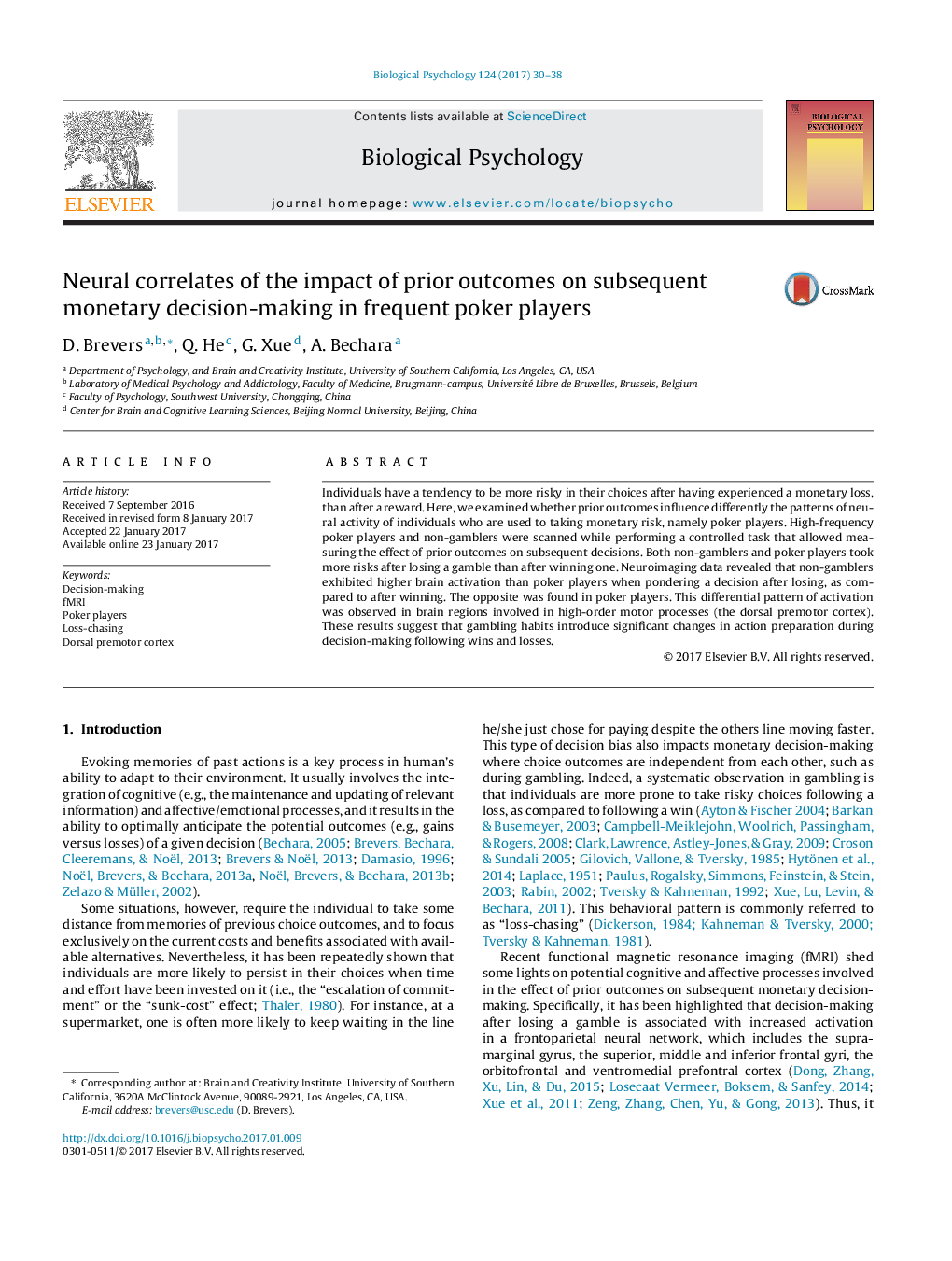| Article ID | Journal | Published Year | Pages | File Type |
|---|---|---|---|---|
| 5040456 | Biological Psychology | 2017 | 9 Pages |
â¢Risk-taking was higher after losing than after winning a gamble.â¢Controls exhibited higher brain activation during risk-taking following losses.â¢Poker players exhibited higher brain activation during risk-taking following wins.â¢These activations were observed within high-order motor control brain regions.â¢Poker habits may affect the brain mechanisms of risk-taking following wins and losses.
Individuals have a tendency to be more risky in their choices after having experienced a monetary loss, than after a reward. Here, we examined whether prior outcomes influence differently the patterns of neural activity of individuals who are used to taking monetary risk, namely poker players. High-frequency poker players and non-gamblers were scanned while performing a controlled task that allowed measuring the effect of prior outcomes on subsequent decisions. Both non-gamblers and poker players took more risks after losing a gamble than after winning one. Neuroimaging data revealed that non-gamblers exhibited higher brain activation than poker players when pondering a decision after losing, as compared to after winning. The opposite was found in poker players. This differential pattern of activation was observed in brain regions involved in high-order motor processes (the dorsal premotor cortex). These results suggest that gambling habits introduce significant changes in action preparation during decision-making following wins and losses.
